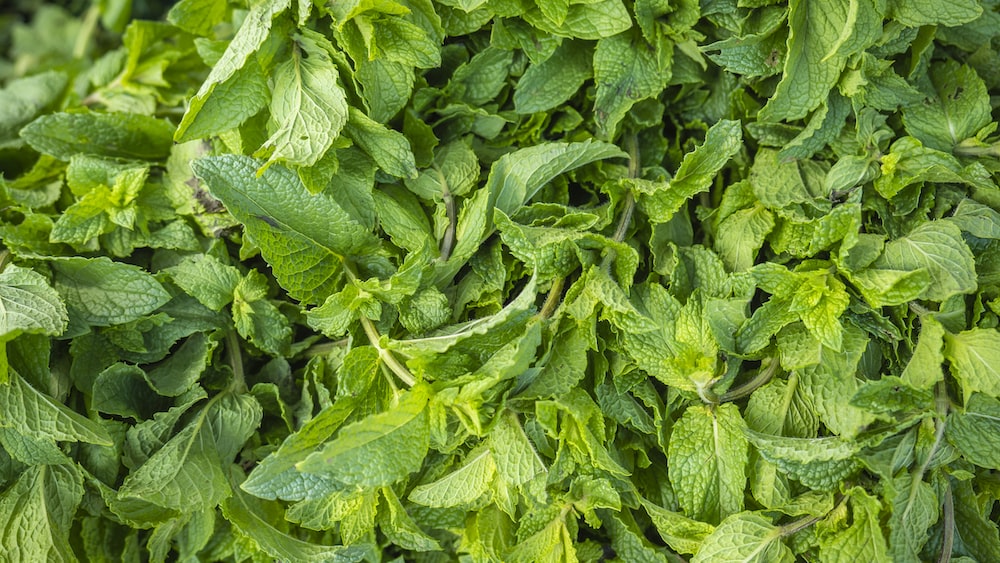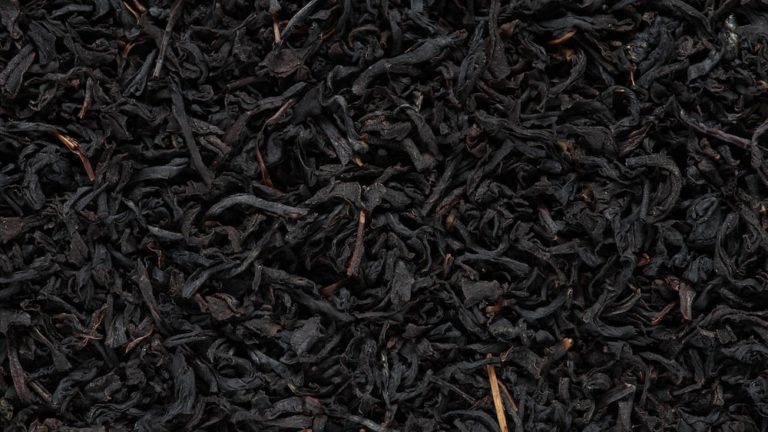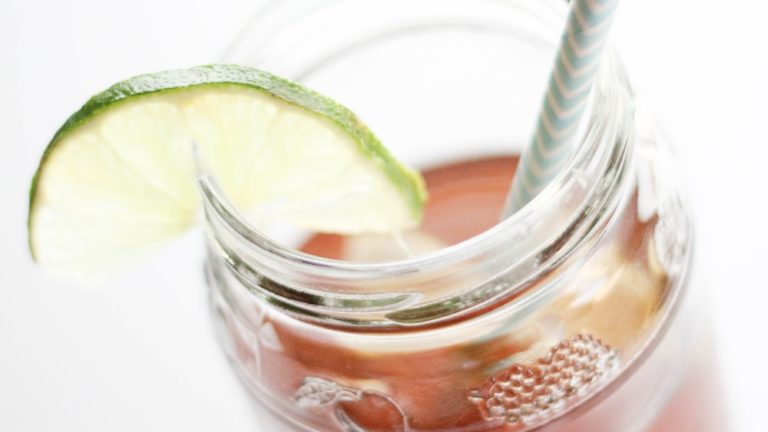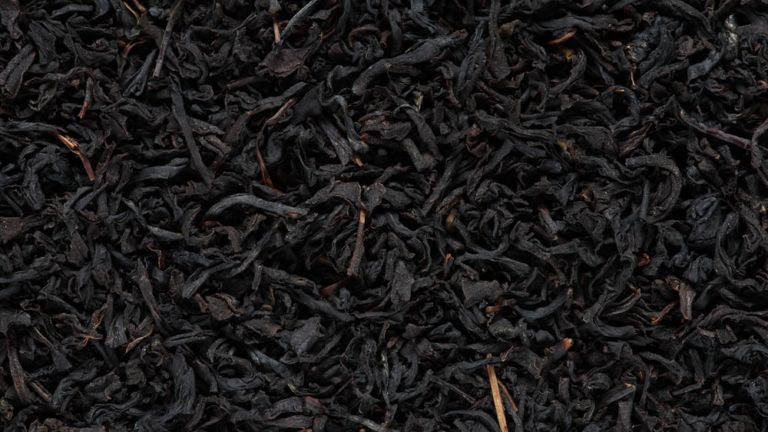Boost Testosterone Naturally With Peppermint Tea: 9 Surprising Facts

Boost Testosterone Naturally With Peppermint Tea: 9 Surprising Facts
Hey tea lovers! Ever had peppermint tea sneak into your cup, saying “How-dee-doo, make way for some cool, refreshing flavor!”? Well, if you’re a man sipping your daily dose of peppermint tea, you might be in for a testosterone show-down. I mean, who knew your beloved cup of tea was playing a double agent, messing around with your important hormones?
Peppermint tea has a reputation for being the chilled-out cousin in the tea family, always managing to soothe an upset stomach or calm a throbbing headache. Yet, it keeps a secret up its sleeve – it could possibly be nudging your testosterone levels. Now, don’t get your tea leaves in a twist! Here’s what we’re going to unravel: The puzzling relationship between peppermint tea testosterone interaction and its surprising impact on your body. Buckle up folks, it’s about to get steep!
Understanding Testosterone and Its Importance
Testosterone – the triple-threat hormone that gives men their baritone voice, facial hair, and that muscular build. But wait, there’s more to this hormone than just these surface-level traits.
What is Testosterone?
Allow me, folks, to introduce Mr. Testosterone – our body’s VIP guest. More specifically, testosterone is a steroid hormone that plays a leading role in our body’s hormone-secrets whispers club. In men, this hormone is produced mainly in the testicles and to a lesser extent in the adrenal glands.
While Mr. Testosterone doesn’t shy away from the ladies, it’s in the men’s camp where he throws the biggest parties. Yes, ladies, you too produce testosterone, but in smaller amounts. However, don’t belittle his presence! Even in those small doses, testosterone ensures proper functioning of your bodily systems.
Testosterone is a steroid hormone that plays a leading role in our body’s hormone-secrets whispers club, ensuring proper functioning of bodily systems in both men and women.
Role of Testosterone in the Body
My oh my, Mr. Testosterone is quite the multitasker! He shoulders the hefty task of maintaining several body systems. He dances around managing your body’s muscle mass, fat distribution, and red blood cell production.
Moreover, he injects strength into the heart of your bone density. And let’s not forget his most publicized job – fuelling sex drive and stepping in to ensure puberty isn’t just another cakewalk – that’s a whole orchestra he conducts singlehandedly!
The Connection Between Peppermint Tea and Testosterone
Well, now we’ve got to the tea essence of the matter – the curious connection between peppermint tea and testosterone.
1. Overview of Peppermint Tea
Peppermint tea, a favorite in the world of herbal teas, hails from the spearmint and watermint family. Packed with benefits, this refreshing brew is like a ninja with a thousand little tricks for health. From easing digestive trouble to boosting your immune system, peppermint tea always strikes gold.
However, there lurks beneath its super cool exterior, a surprising catch – its possible effect on testosterone levels. What? Our super-tea playing with our hormones? Let the plot thicken!
2. The Science Behind Peppermint Tea and Testosterone
Okay, folks, it’s time to talk science. Multiple studies suggest that peppermint tea may influence testosterone levels. It appears our beloved tea may just be the charming culprit, discreetly lowering testosterone levels in men.
Researchers suggest that this is due to certain ingredients in peppermint, which can interrupt the normal production of testosterone. While this is not to say you should banish peppermint from your tea cupboard, it’s certainly food (or should I say drink?) for thought!
Multiple studies suggest that peppermint tea may lower testosterone levels in men, so while it’s not necessary to completely eliminate it from your diet, it’s worth considering its potential effects.
The Impact of Peppermint Tea on Testosterone Levels
Now, let’s dissect how the charmingly cool peppermint brew impacts testosterone levels.
3. How Peppermint Tea Lowers Testosterone
Peppermint tea, in its innocence, contains a compound named menthol. Menthol doesn’t just give your tea the refreshing cool taste, this compound pulls the strings in the hormone world too.
Menthol, as studies suggest, plays a role in reducing testosterone level by lowering the luteinizing hormone (LH) and follicle-stimulating hormone (FSH), which are necessary for testosterone production. See? This is peppermint tea stirring the hormone pot, the unassuming, refreshing, ever so tasty, yet potentially testosterone-lowering brew! Fascinating, isn’t it?
4. Studies Supporting the Effect of Peppermint Tea on Testosterone
It’s not just tea enthusiasts and health-conscious individuals who are continuously singing praises for peppermint tea, the science community is also hooking up on this fandom. A study conducted by researchers at the University of Suleyman Demiro Mustafa Kemal University gave women spearmint (a close relative of peppermint) tea for a period of 5 days and found significant drops in testosterone levels.
Now, you’re probably quivering your whiskers at this point, thinking, “Isn’t a testosterone dip a bad thing?” Well, it depends on the context. For women, especially those with conditions that cause a surge in testosterone (like PCOS), this could be the equivalent of hitting an endocrine jackpot. So, yes, the influence is real and backed by research – peppermint tea testosterone reduction is not just a fad.
Other Foods and Drinks That Influence Testosterone Levels
Buckle up, because peppermint tea isn’t the only stirrer in your hormone cocktail. It sure does a dance with your testosterone, but let’s not forget about the other foods and drinks who like to cut the rug, so to speak, with your hormone levels. Let’s stage-dive into this rabbit hole, shall we?
5. Soy Products and Testosterone
Think cuddling up with a bowl of edamame or a silk smooth tofu pudding is harmless? Think again! Soy products have been the subject of many a debate in the testoster-teams (yup, those exist).

Multiple studies suggest a link between soy consumption and a decrease in testosterone levels. Behind this alleged connection are phytoestrogens, compounds found in soy that mimic estrogen in the body. So, if you’ve been chugging down soy milk while expecting your testosterone to skyrocket, your efforts might have tanked.
6. Alcohol and Testosterone
Once upon a time, after a night of debauchery with tequila shots and boozy shenanigans, there was a testosterone demise. If that sounds like a tragic tale, well, that’s because it is.
Alcohol, dear reader, is no friend to your testosterone. A study found that chronic alcohol consumption tampers with the parts of the brain that regulate hormones, leading to a drop in testosterone. But the plot thickens! Acute alcohol intake can increase testosterone in the short term. Ah, the irony! And you thought your relationship status was complicated.
So, where does that leave our little hormone friend? Well, stuck between a rock and a hard place, figuratively speaking. Moderate alcohol consumption, it seems, is the key.
Chronic alcohol consumption can lead to a drop in testosterone, but acute alcohol intake can temporarily increase testosterone levels.
7. Licorice Root and Testosterone
Licorice, that bittersweet root, could be lowering your testosterone under the guise of your beloved tea or candy. A study published in the New England Journal of Medicine showed that men who consumed licorice saw a reduction in testosterone levels in just a week!
Hiding behind that sweet, comforting façade, licorice contains a compound called glycyrrhizin. This sneaky little compound inhibits an enzyme needed to produce testosterone. As if licorice wasn’t polarizing enough with its flavor!
8. Flaxseed and Testosterone
Flaxseed is turning heads again, and not only for being a tiny powerhouse of nutrients. Sure, it might make smoothie enthusiasts’ hearts flutter faster, but it’s also buzzing around testosterone town.
Research indicates that flaxseed is high in lignans, compounds that bind with testosterone and escort it out of the body. And if your testosterone is having an exit party, it certainly isn’t partying in your body, the very place you need it the most. So, flaxseed and testosterone – it’s complicated.
9. Trans Fats and Testosterone
Move over sugary culprits, enter trans fats – the villains of the nutrition world! Now, what if I told you these culinary outcasts are also throwing shade at your testosterone levels?
Studies show that diets high in trans fats decrease testosterone. Your favorite fast food and processed snacks? They could be sneakily attacking your precious hormone levels. As much as a plate of greasy fries might twitch your nose, it might be time to rethink it if you’re serious about your hormone health.
Diets high in trans fats can decrease testosterone levels, so it may be time to reconsider your favorite fast food and processed snacks if you’re serious about your hormone health.
Natural Ways to Boost Testosterone
Put down that peppermint tea (or any testosterone-trampling foods and drinks for that matter) and uncross your arms. It’s time to side-step into the action-packed, testosterone-boosting natural strategies. Ding, ding, ding, ladies and gentlemen – that’s the round bell calling!
Exercise and Testosterone
We kickstart with a simple implementation – exercise – your body’s organic ‘Testosterone Factory’. Yes, folks, the whispers are true, exercise is indeed your knight in shining activewear when it comes to boosting testosterone.
A recent study showed that regular physical exertion could socially distance testosterone from the ‘low-level’ zone. When they say “motion is lotion,” they aren’t just referring to flexibility. Your testosterone levels also get a juicy boost!
But beware, not all exercises are created equal. You can’t play hopscotch and expect a testosterone tsunami. Weight lifting and high-intensity interval training (HIIT) have proven exceptional at triggering testosterone highs. So, it might be time to swap that hopscotch for kettlebells and squats.
Balanced Diet and Testosterone
Ah, the beloved diet, every health enthusiast’s favorite or somewhat of a love-hate relationship. Just as you can’t build a majestic house without quality bricks, a balanced diet is the cornerstone of not just your overall health, it has a big say in your testosterone levels too. Shocked? Well, don’t be. Just like a greedy squirrel hoarding acorns, our bodies are wired to use whatever nutrition we give it.
Look at consuming certain nutrients that include zinc, vitamin D, and protein, which are known for their testosterone-enhancing properties. While you’re at it, don’t just toss in a handful of mushrooms with blithe disregard, remember that they too play a role in testosterone production. We’ll delve into the detail of it, now how’s that for the depth?
Adequate Sleep and Testosterone
Does the thought of a warm, cozy bed invoke the same level of excitement in you as a child spotting an ice-cream truck? While it sounds like a well-crafted joke straight from stand-up night, the truth is equally lighthearted3⁄4adequate sleep is directly related to testosterone levels. Between the sheets, both literally and figuratively, is where the magic happens for your testosterone.
Remember that time when you stayed up watching the entire season of your favorite show on a weeknight? Yup, your testosterone levels took quite a hit. Because while you were binging on the relentless antics of your favorite characters, your testosterone production was having a mini breakdown moment. The recommended duration of sleep every night is around 7-9 hours, anything less than that, and your testosterone levels might start dropping like a hot potato.
So you see, it’s always better to be the early bird catching not the worm, but higher testosterone. And once you get into the groove of a goodnight’s sleep, even the resounding snores of your partner that feels like coming straight out of a grizzly bear den won’t bother you!
Stress Management and Testosterone
Even contemplating stress makes you stressed out, doesn’t it? Easy, Oompa Loompa. Being the sneaky little devil it is, stress is a serious saboteur when it comes to testosterone production. It’s like that annoying character in every movie that you simply can’t stand, but it has a major role in the plot. Stress leads to the body releasing a hormone called cortisol which, in turn, throttles the life out of your testosterone.
Before you start frantically researching ways to evacuate stress, let me help you out a bit. Aerobic exercises like running, meditation, and even a relaxing hobby like painting can help manage stress levels. C’mon, give it a shot, I promise you won’t turn into a weirdly-shaped Picasso painting oozing cortisol. On a serious note, managing stress can get quite challenging sometimes, but with persistence, you can embark on a more relaxed journey towards higher testosterone levels.

Stress is a sneaky saboteur of testosterone production, but managing it through aerobic exercises and relaxation techniques can help maintain higher levels.
FAQs
1. Can Peppermint Tea Reduce Testosterone Levels in Women Too?
Since we’ve touched upon how peppermint tea potentially impacts testosterone levels, it’s only fair to address that this effect isn’t exclusive to men. Women too could experience similar effects, particularly in the case of excessive consumption. However, as always, variations in hormonal responses rely heavily on individual physiological differences as well as consumption patterns.
2. How Much Peppermint Tea Should I Drink to Affect Testosterone Levels?
Determining the ideal amount of peppermint tea for testosterone effect isn’t an exact science. Individual physiological responses vary. However, general recommendations suggest not more than 2-3 cups a day. Knowing individual tolerance and consultation with healthcare professionals is vital before making significant dietary shifts.
3. Are There Any Side Effects of Drinking Peppermint Tea?
Side effects of drinking peppermint tea are mostly benign and could include allergic reactions in rare cases. Frequent consumption might lead to heartburn or an upset stomach. Again, the mantra of anything in moderation rules here, providing the much-needed acid-test of reality to balance our peppermint tea testosterone adventure.
4. Can I Increase My Testosterone Levels Naturally?
Definitely! Natural ways to increase testosterone levels encompass many lifestyle changes that work in synergy. This includes a balanced diet, exercise, reducing stress, and getting adequate sleep. Peppermint tea testosterone interactions are just one aspect of this larger mosaic.
Conclusion
All things considered, the intricate dance between peppermint tea and testosterone seems like something out of a Shakespearean drama. The tantalizing tango has left some of us with our eyes widened in intrigue, while others surprised or skeptical. Sure, it might not have the flashy flair of hyperplasia or the tongue-twisting allure of glycyrrhiza glabra. Still, the effects of plant-based diets, lifestyle choices, and more on our hormones make us sit straighter in our seats.
We’ve taken a leaf out of the humble peppermint’s book to glance at the incredible world of testosterone levels and our overall health. But remember to always pay heed to your body and approach any significant dietary changes, like downing peppermint tea like water, with a sensible conversation with your healthcare professionals first.
Before I say goodbye, remember, folks, like a pot of peppermint tea brewing slowly, let your knowledge on such matters steep well into the depths of your understanding. Until we meet next, keep sipping, keep exploring the wonderful world of teas. Over and out, Zoe.






